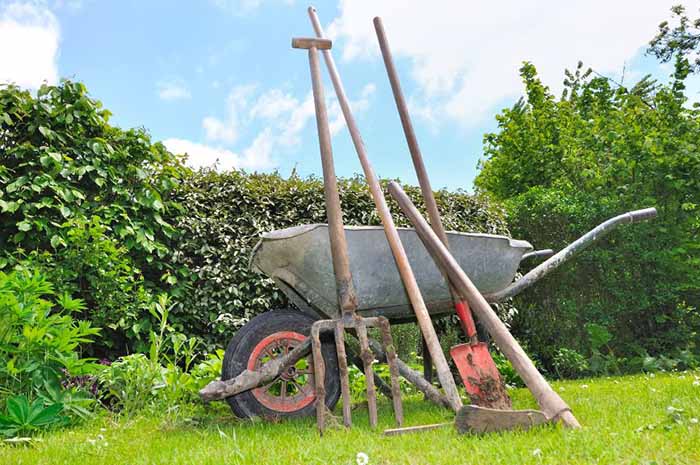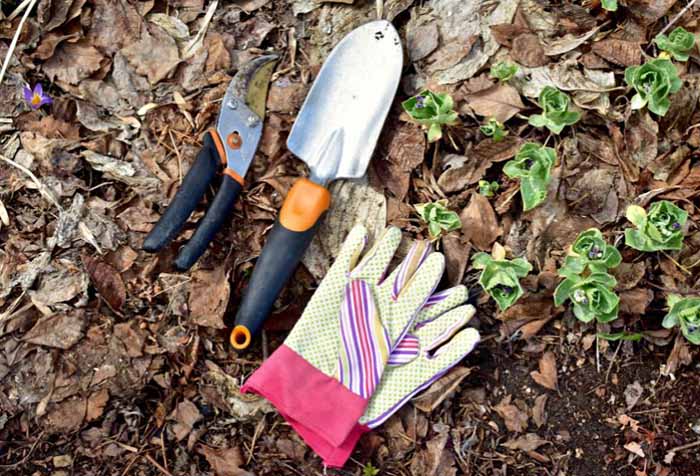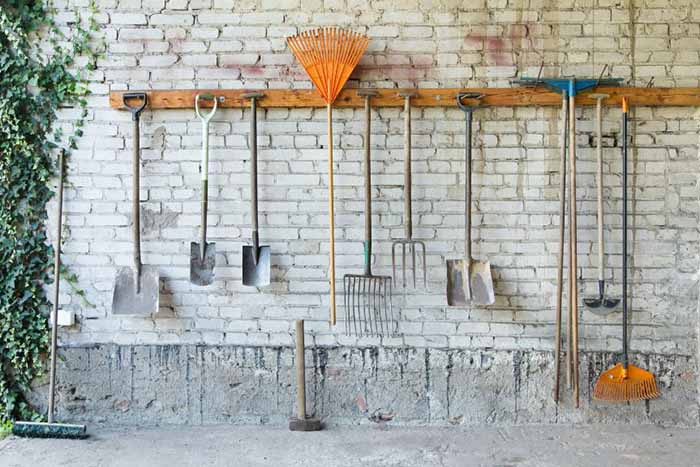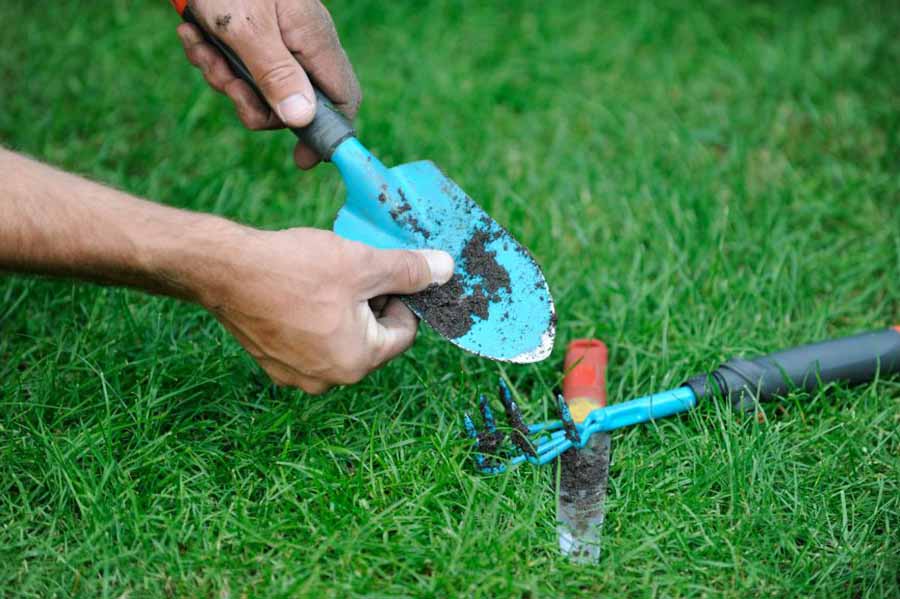Maintaining a garden involves more than just the initial steps of planting and watering. It requires attention to detail and proper care, including the maintenance of garden tools. Unfortunately, the significance of keeping garden tools clean is often underestimated or overlooked by many gardeners.
According to a survey conducted by the National Gardening Association in 2020, only 42% of gardeners regularly clean their tools following every use, while 58% admitted to cleaning them only occasionally or never. This neglect can result in the accumulation of soil, debris, harmful pathogens on tools and contributes to the spread of plant diseases and reducing their longevity. That’s why, in this post, we will answer the question “Why is it important to clean your garden tools?” Keep Sweeping!
Preventing Spread of Disease
One crucial reason for cleaning tools in the garden is to prevent the spread of diseases among plants. Plant pathogens can easily transfer from one plant to another through contaminated tools. Without proper cleaning, these pathogens can wreak havoc on the entire garden and can lead to losses in crops.
Cross-contamination is another concern when garden tools are not cleaned regularly. Tools used for pruning infected plants. For example, can inadvertently spread diseases to healthy plants if not properly sanitized between uses.

Prolonging Tool Lifespan
Regular cleaning safeguards plant health aongside extends the lifespan of garden tools. Typically, moisture and soil residue left on tools promotes rust and corrosion, especially on metal surfaces. By cleaning and drying tools with every use, you can prevent rust formation. Besides, it ensures their tools remain in good condition for prolonged years. It helps to save money by avoiding unnecessary purchase of gardening tools.
Maintaining sharpness is another benefit of cleaning garden tools. Soil buildup and sap residue dull cutting edges that makes tasks like pruning and cutting less effective and more laborious.
Promoting Plant Health
Dirty garden tools can introduce harmful substances into the soil. It affects plant health in the long run. Soil contamination from contaminated tools can alter the pH balance and nutrient levels that impede plant growth and development.
Furthermore, pests and insects can hitch a ride on dirty tools and inadvertently transferring them from one plant to another. Regular cleaning helps mitigate these risks and promotes a healthier garden environment.
Enhancing Garden Aesthetics
Clean and well-maintained garden tools enhance the overall aesthetics of the garden. Rusty or dirty tools detract from the beauty of the garden and reflect poorly on the gardener’s care and attention to detail.
Research conducted by the Royal Horticultural Society (RHS) in 2022 revealed that gardens with well-maintained tools are perceived as more attractive and tended to by visitors. The study found that 87% of respondents agreed that clean and organized tools positively influenced their perception of the garden’s overall appearance.
Maintaining Efficiency
Clean garden tools contribute to a more efficient gardening experience. Sharp and well-maintained tools make tasks easier and more enjoyable. It won’t take extra times to do those tasks before starting your every gardening sessions. Also, it is stressful to see uncleaned gardening tools before gardening tasks. A study published in the Journal of Environmental Psychology highlighted the psychological impact of visually pleasing gardening environments. It showed that gardeners exposed to well-kept gardens reported lower stress levels and higher levels of satisfaction compared to those in unkempt settings.
Process of Cleaning Your Garden Tools
Cleaning garden tools is a candid process that begins with removing any visible dirt and debris. Using a brush or scraper, scrub the surfaces of the tools to dislodge soil and residue. For stubborn stains or sap, soaking the tools in warm, soapy water can help loosen the buildup.
Once clean, thoroughly dry the tools to prevent rust formation. For metal tools, a thin coat of oil can provide additional protection against corrosion. Sharpening blades and lubricating moving parts are also essential steps in tool maintenance.

Frequency of Cleaning
Ideally, garden tools should be cleaned after each use to avoid the accumulation of soil and contaminants. However, the frequency of cleaning may vary depending on usage and environmental factors. As a general rule, tools should be cleaned and maintained regularly with more thorough cleanings performed during the conclusion of every gardening season.
Storage Practices
Proper storage of garden tools is essential for maintaining their condition and prolonging their lifespan. Store tools in a dry, adequately ventilated space to prevent moisture retention
and rust formation. Hanging tools or storing them upright can also help prevent damage and prolong their sharpness.
Eco-Friendly Cleaning Solutions
While commercial cleaners are available for cleaning garden tools, many gardeners prefer to use eco-friendly alternatives. Vinegar, baking soda, and lemon juice are all effective natural cleaners that can remove dirt and grime without harming the environment. Avoiding harsh chemicals is a wise decision to protect the health of plants and your hands alike.
Conclusion
In essence, devoting effort to cleaning and maintaining garden tools not solely enhances the visual appeal of the garden besides adds to a favorable impression of the gardener’s dedication and expertise. Keeping your garden tools clean is a crucial part of maintaining your garden and shouldn’t be ignored.
By prioritizing the upkeep of tools, gardeners can create an inviting and aesthetically pleasing outdoor space. It remains a source of pride and enjoyment for both themselves and others. So, stop questioning yourself “Why is it important to clean your garden tool” and start following simple cleaning and maintenance practices from today. Happy gardening!
FAQs
How often should I clean my garden tools?
It’s best to clean your tools for the garden while finishing your gardening tasks. This practice will help you to prevent the buildup of dirt and contaminants. However, more thorough cleanings should be done at least once a season.

Can I use household cleaners to clean my tools?
Yes, many household cleaners such as vinegar, baking soda, and lemon juice are effective at cleaning garden tools. These cleaners are harmfree that won’t harm the soil as well as your health.
Should I oil my tools after cleaning?
Yes, It’s recommended to oil your tools post-cleaning. Adding a thin coat of oil to metal tools prevents rust and corrosion. This practice extends their longevity and maintains their effectiveness.
What’s the best way to remove rust from garden tools?
Rust can be removed from garden tools. You can use a wire brush or sandpaper while cleaning. For stubborn rust, soaking the tools in a solution of vinegar or lemon juice can help dissolve the rust.
Can dirty tools harm my plants?
Yes, dirty tools can introduce harmful pathogens and pests into the garden that lead to disease and pest infestations. Thus it can harm plants. Regular cleaning helps to prevent these risks alongside promoting a more vibrant garden ecosystem.
